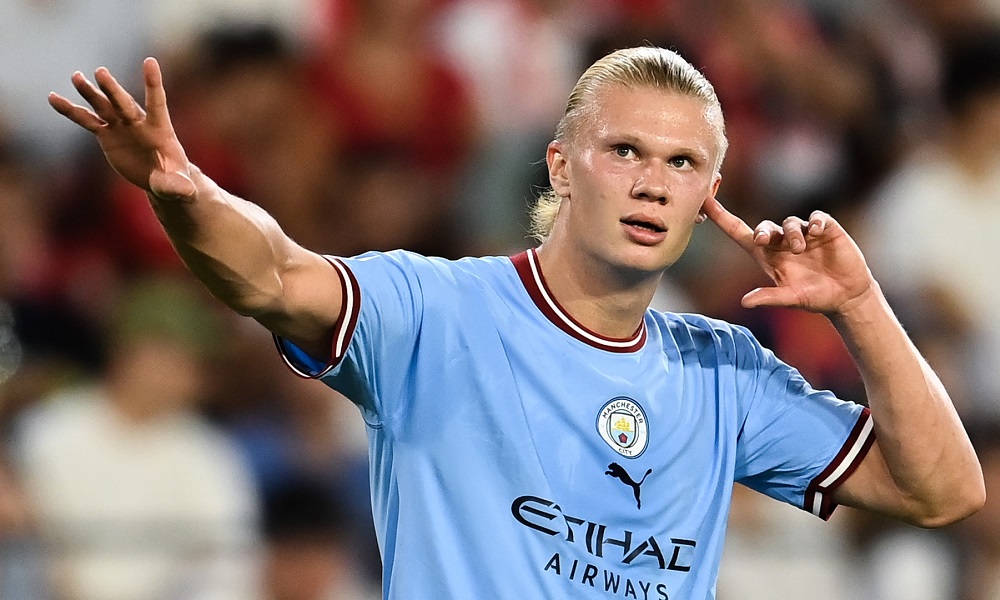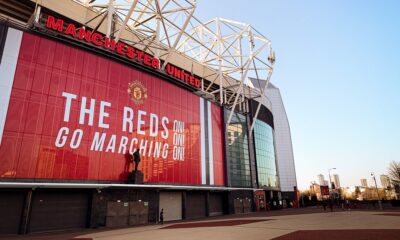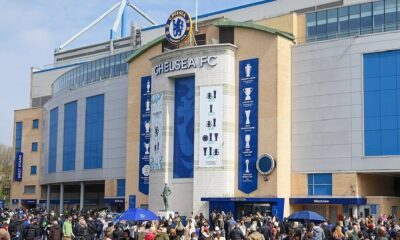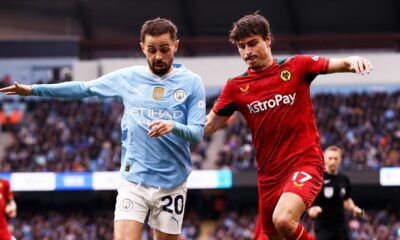Features
Manchester City’s Struggles: What’s Going Wrong?
The last two months have been every Manchester City fan’s nightmare. For the first time since Pep Guardiola took over, City has gone winless for eight games
The last two months have been every Manchester City fan’s nightmare. For the first time since Pep Guardiola took over as manager, City has gone winless for eight games in a row.
Now, fans are left wondering—what is actually going wrong?
Manchester City, who etched their name into the record books last season by becoming the first team to win four league titles back-to-back, have now made history for the wrong reasons: they’re the only reigning champions to lose five consecutive games across all competitions.
Cityzens Are Spiraling
For all the achievements of Guardiola’s reign, this sudden downturn may be puzzling on the surface. But the root of Manchester City’s struggles is remarkably straightforward.
There’s nothing about this so-called “crisis”—which somehow worsened even after breaking the losing streak on Tuesday night—that feels entirely unexpected. Even at their peak, City has flirted dangerously close to trouble without fully realizing it.
The root cause lies with Guardiola—who, incidentally, is also the reason City has been the best club side on the planet for most of the last eight years.
More specifically, City’s woes stem from Guardiola’s preference for a small squad. Over the years, this coaching philosophy has shaped their approach, even when the club had the financial resources to field two elite players in every position.
Since last summer, Julian Alvarez, Joao Cancelo, Riyad Mahrez, and Cole Palmer have left the club, with only partial replacements coming in.
Fans, particularly those active in the secondary ticket marketplace, were displeased with these exits—especially Alvarez’s departure. Yet, under Guardiola’s methodology, there seemed to be no alternative.
Unfortunately, the replacements have not yet hit their stride. They’re still very much a work in progress.
It’s hard to fathom how a club with revenues of over $870 million could lack sufficient backup for Erling Haaland or feel the sting of a preseason injury to Oscar Bobb.
A Familiar Precipice
City’s streak of brilliance in recent seasons masked underlying cracks.
Just 14 months ago, key players like Bernardo Silva, Kevin De Bruyne, and John Stones were either sidelined or struggling for form.
Haaland’s incredible scoring prowess often papered over these cracks. When he was sidelined in the winter, City benefited from a relatively easy fixture list until De Bruyne’s return.
But this season, the tempo-setter and ball-winner at the heart of City’s midfield—Rodri—is missing due to an ACL injury. His absence has destabilized the team entirely.
Rodri’s Absence
Without Rodri, City’s performance has spiraled. Their five-game losing streak—bookended by defeats to Tottenham—has hardly been eased, even with a midweek draw against Feyenoord in the Champions League.
That 3-3 draw was particularly bitter for fans who had flocked to the secondary ticket marketplace for what they hoped would be a turning point.
In reality, this rough patch began well before Rodri’s injury. Even while scraping past Wolves, Fulham, and Southampton, the cracks were evident.
Since Rodri’s exit, City’s record is six wins, two draws, and five losses. Their goal difference of +3 is flattering, boosted by lopsided wins against Sparta Prague and Slovan Bratislava in the Champions League.
Opposing teams have capitalized on City’s weakened midfield. Time and again, they draw City into a press, bypass it with sharp passes, and exploit a scrambling defense.
Haaland’s Struggles
While City’s struggles aren’t solely down to Erling Haaland, his recent slump has exacerbated their issues.
The Norwegian has scored just seven goals from an expected 12.5 xG. He’s still taking nearly six shots per 90 minutes, so it seems only a matter of time before he regains his form.
However, City’s offense remains overly reliant on Haaland, who accounts for nearly half their xG in the Premier League this season. If he doesn’t start firing, City could be in serious trouble.
The De Bruyne Dilemma
There is a glimmer of hope: Kevin De Bruyne has returned to the pitch, playing his most minutes since September.
De Bruyne’s absence has been keenly felt. The Belgian maestro has managed just 462 minutes of football this season, robbing City of their primary creator.
De Bruyne’s partnership with Haaland was the cornerstone of City’s treble-winning campaign last season. Beyond his creative genius, De Bruyne is a leader on the pitch—setting standards and demanding excellence.
However, relying on him to singlehandedly rescue the season in what could be his final run with the club is a gamble that City, with their resources, shouldn’t need to take.
What Lies Ahead
For City to salvage their season, they’ll need more than just luck.
Perhaps De Bruyne stays fit and reignites the attack. Maybe Rodri makes a miraculous return in the spring. But hoping for miracles is risky business for a club of this stature.
Fans can still catch Manchester City in action, with tickets for upcoming games available on the secondary ticket marketplace.
City in the Drop Zone
While City are still in front in the Premier League, they will need some firepower to qualify for the automatic qualifier spots in the UEFA Champions League.
In the overall points table, City is 17th, which is quite a troublesome spot. In contrast, England’s rivals, Liverpool, are at the top.
The fans with Manchester City tickets will hope the club can master a winning streak in the next few games to make this happen. Otherwise, City will head to the playoffs, where the bottom-seeded 16 teams will play each other for a spot in the Round of 16.
The 2022 winners wouldn’t have imagined this would be their plight in the European competition, but the new format has brought an equalizer for all the clubs—no one is built differently, and a similar level of competitiveness is seen.
Fans who are weekday visitors with options from the secondary ticket marketplace love the end-to-end action. Earlier, only two to three groups were competitive, and the rest was a one-sided affair.
Now, there’s more to the competition. The fans love this, but the players have continuously shown their frustration with the heavy workload and extended fixtures.
Now, players play more games in a season, which is taking a toll on everyone.




















